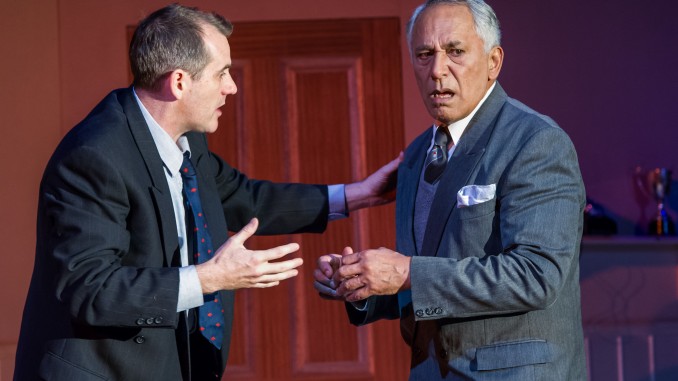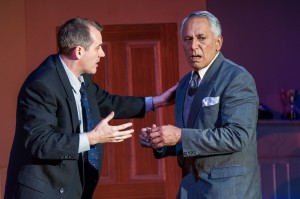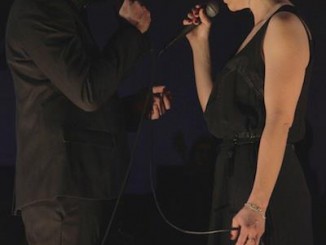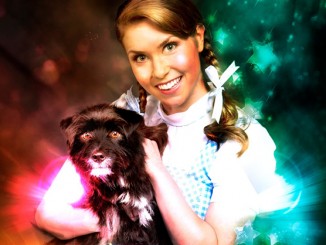
I’m sold [by Matt Baker]

In his opening night speech, director Jesse Peach obscurely alluded to the possibility of Death of a Salesman being his last production*. While I actively concede that this may have been a misinterpretation of inarticulate speech, I would like to think that going out on a high note is the correct course of action in the case of Peach Theatre Company, as a high note has now been achieved.
Programme notes and post-show audience commentary of the play beat the more-relevant-now-than-ever drum, yet, I would riposte, when has it not been? Even before we left the jungle, when have the concepts of success, monetary gain, parental delusion, parental worship, delusions of grandeur, self-achieved submission, and family not been relevant? A play’s success comes from the universality and timelessness of its themes, and, while the social, economic, and political climate of a city/country in which a play is produced should have some relevance, I found far more in the story between father and son than in that of the American Dream. This is not due to any lack on the part of George Henare as the eponymous salesman (there is, quite simply, nothing that Henare lacks as an actor) or the apathy-inducing over-abundance of economic/financial hardship we see purported in the media, but can instead be ascribed to the complexity, empathy, and power of Ian Hughes’ portrayal of Biff.
Where Catherine Wilkin sets up the audience with a loving and empathetic portrayal of the dutiful housewife, Hughes knocks them down with an emotionally charged commitment to communicating with both his parents. The emotional depth of Wilkin’s role is well-reasoned with her various deliveries of particular lines to both Hughes and Richard Knowles. Henare, stuck in the middle, bounds between both extremes and finds a vast array of shades within. Knowles is slightly off the theatrical pitch as set by his on-stage family, however, this ironically works in making Happy the off-centred member of the family, the intrinsic black sheep. Knowles shines when Happy is in his most successful environment – the company of women.
As brother Ben and waiter Stanley, Ken Blackburn MNZM is even-toned with the slightest touch of superciliousness, and charmingly sweet respectively. Bruce Phillips is an absolute scene-stealer with his finely tuned comedic timing and ease of being as neighbour Charley. Nic Sampson finds both the awkwardness in youth and the finesse of avoiding a stereotypical portrayal of Bernard, as well as a nice counterweight in his latter years. Dwayne Cameron finds the comedy and humanity within the arrogance of Howard Wagner, but isn’t quite in the right place emotionally to be banging on a table in response to Henare’s doing so.
Annie Whittle is gaudily giddy as the other woman in Willy’s life. The dramatic irony of her nonchalance towards Hughes and the consequent diatribe between him and Henare makes for a heart-wrenchingly painful pathos. In what I presume was an attempt to find a dichotomy between Bernard’s wife Jenny and the alluring Miss Forsythe, Anne Jullienne finds a seductively smooth manner in the latter, but pushes too far with her physicality in the opposite direction for the former. Blonde bombshell Aimee Gestro serves her male leads diligently as Letta, interjecting with what little dialogue she has without breaking the cadence of the scene.
The second act was inarguably more engaging than the first. While in the first act it felt that the actors’ ability to gain any dramatic traction had been hindered by Peach’s recognisable direction, in the second it appeared they had been left to their own devices and interpretations – as Peach himself noted, it is a black curtain play. Speaking of which, I did miss the city skyline as specified in the script, the lack of which made the set, designed by Emily O’Hara, rather stunted. However, the deconstructed set elements allowed for not only a symbolic flow to the play’s narrative, but a nicely cathartic moment for Henare’s final scene. Likewise, Rachel Marlow’s lighting design was befitting in highlighting particular points in Willy’s mental and emotional journey, and, although some of the snaps and fades need more articulation, I loved Ben’s amber state. Lynn Cottingham’s costume design is subtle and precise for the men, especially in evoking the boy’s younger years, and extravagant yet simple for the women, especially for Jullienne and Gestro. Yid-Ee Goh (violin), Wen Chuan Lin (viola), Katherine Hebley (cello), and Adrianna Lis (the all-important flute) have been led by composer Anthony Young in what could easily become the optimal default soundtrack to future productions.
Millar is a constant in the specificity of his stage direction, so I am left to wonder, why, in such a stylised production in regards to spectacle, Peach incorporated such a tacky sound-effect in the penultimate scene, especially when the script reads ‘the music crashes down in a frenzy of sound,’ which would have been far more apt and undoubtedly achievable in Young’s capable hands. It is a minor moment, but it did soil Willy’s off-stage exit in my own imagination.
While the various elements of this production incorporate both conventional and stylised aesthetics, the latter of which oblige the text in their artistic interpretations, it is truly the complete ensemble of actors who make this particularly production worth seeing. The transcendence of Henare, the power-house that is Hughes, the devotion of Wilkin, the composure of Blackburn, and the endearing Phillips are of particular note, but it is the inclusive talents of the affable Knowles, the cheek of Whittle, the pragmatic Cameron, the resonant Sampson, the beguiling Jullienne, and even the vivacious Gestro that make Death of a Salesman worth the price of the ticket.
* Editor’s Note: Peach Theatre Company are next doing The History Boys at Sydney’s Opera House in 2013. Australia calling?
Death of a Salesman is presented by Peach Theatre Company and plays at The Maidment Theatre until 27th October. More details see Maidment.
SEE ALSO: Theatreview.org.nz review by Nik Smythe




Leave a Reply